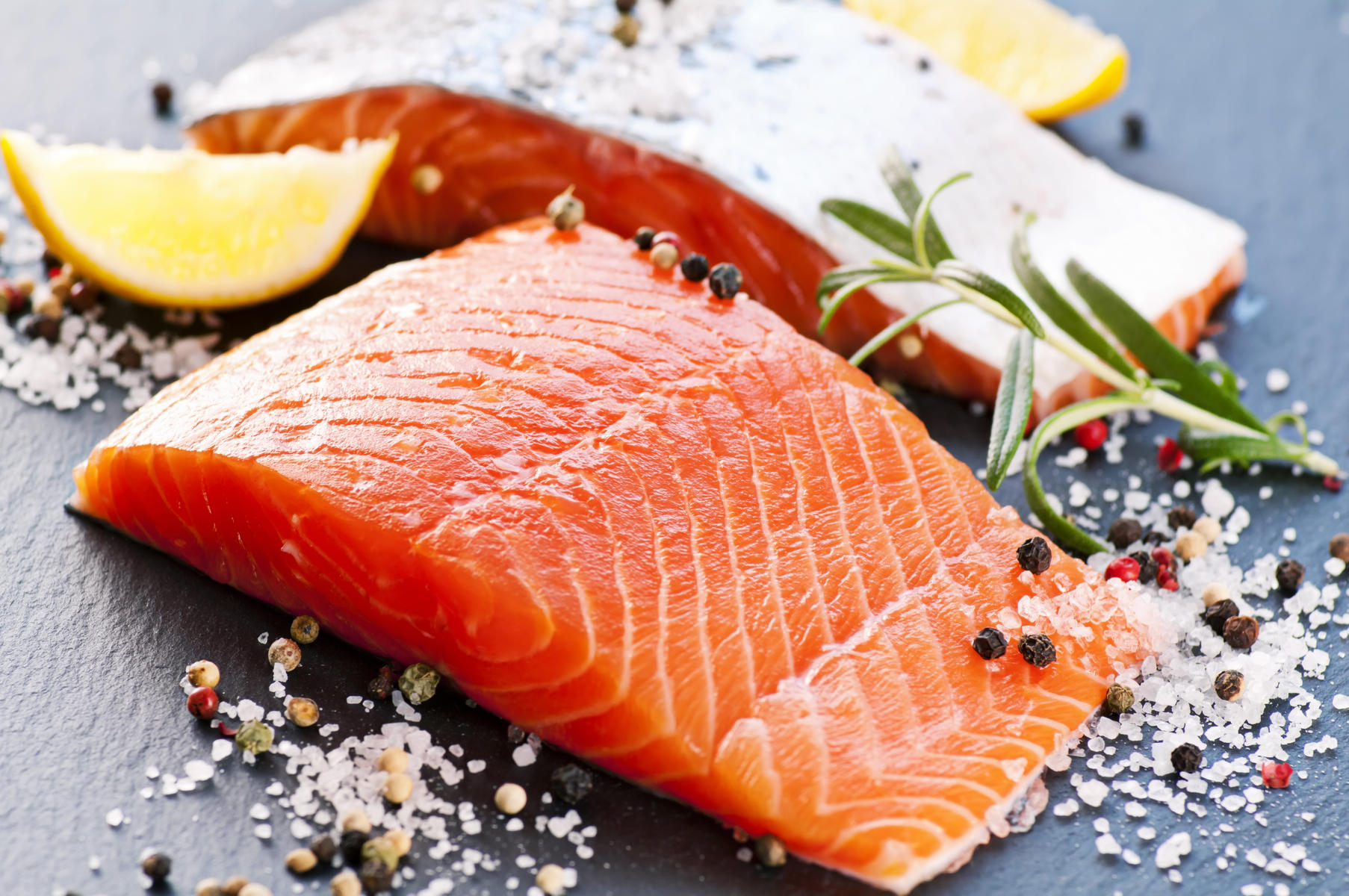Fish has plenty of health perks, especially for babies, young children, and pregnant people. But just how much should you serve your family, and which types of fish are best? The U.S. Food and Drug Administration (FDA) and U.S. Environmental Protection Agency (EPA) recently released updated advice that makes it easier to navigate the fish counter. Here's what parents need to know.
How Much Fish Should My Family Eat?
First, here's what hasn't changed with the FDA's guidance: They still recommend that kids eat fish twice a week. That's because nutrients in fish—like omega-3 fats, protein, vitamins, and minerals—help support their developing brains and immune systems. People who are pregnant or breastfeeding should eat two or three servings per week, as fish is shown to benefit a developing baby.
Here's what a serving of fish looks like:
Choosing the Best Types of Fish
Your family's fish servings should come mostly from the FDA's "Best Choices" list; these contain less mercury, a heavy metal that can harm the brain and nervous system if consumed in large amounts. The guidelines specifically call out the fish in this category that are especially low in mercury: Atlantic mackerel, catfish, clams, crab, crawfish, flounder, haddock, lobster, mullet, oysters, plaice, pollock, salmon, sardines, scallops, shrimp, sole, squid, tilapia, trout, whiting, and more. See the complete list of Best Choices here.

Some fish are categorized as "Good Choices." They have higher levels of mercury, so you should limit servings to just one per week. They include canned albacore (white) tuna, grouper, halibut, mahi mahi, snapper, and monkfish. See the complete list of Good Choices here.
Children, as well as pregnant and breastfeeding people, should steer clear of all varieties on the FDA's "Fish to Avoid" list because of high mercury content. Those are king mackerel, marlin, orange roughy, shark, swordfish, tilefish from the Gulf of Mexico, and bigeye tuna.
FDA Guidelines on Safe Fish Consumption
If your family eats fish, follow these guidelines and recommendations from the FDA and EPA.
Fish is safe for babies. After they turn 1 year old, children can have about 1 ounce of fish twice a week from that "Best Choices" list. This advice echoes the latest Dietary Guidelines for Americans, which recommend introducing potentially allergenic foods like fish, peanuts, egg, cow's milk, and soy when you start other solids. There's no evidence that delaying these items will help prevent food allergies (always talk to your pediatrician first, especially if there's a family history of food allergies or signs of other allergies).
Fish is beneficial during pregnancy. Scientific evidence shows that fish can help a baby's developing brain and is associated with better cognitive outcomes. The FDA recommends that women eat between two and three servings per week during pregnancy. A serving for adults is roughly 4 ounces of fish, and as with kids, those servings should mostly come from the "Best Choices" list.
Fish is important for young kids. Specific nutrients in fish—like omega-3 and omega-6 fats, iron, zinc, and choline—are used by the body for developing a healthy brain, spinal cord, and immune system in the womb and during early childhood.
Fish is good for overall health. Fish doesn't just have health benefits for babies and kids. It's known as a heart-healthy food for adults, and there's also evidence that diets including fish are linked to a lower risk for obesity, hip fractures, colon cancer, and rectal cancer.
Sally Kuzemchak, MS, RD, is a registered dietitian, Parents advisor, and mom of two who blogs at Real Mom Nutrition.

